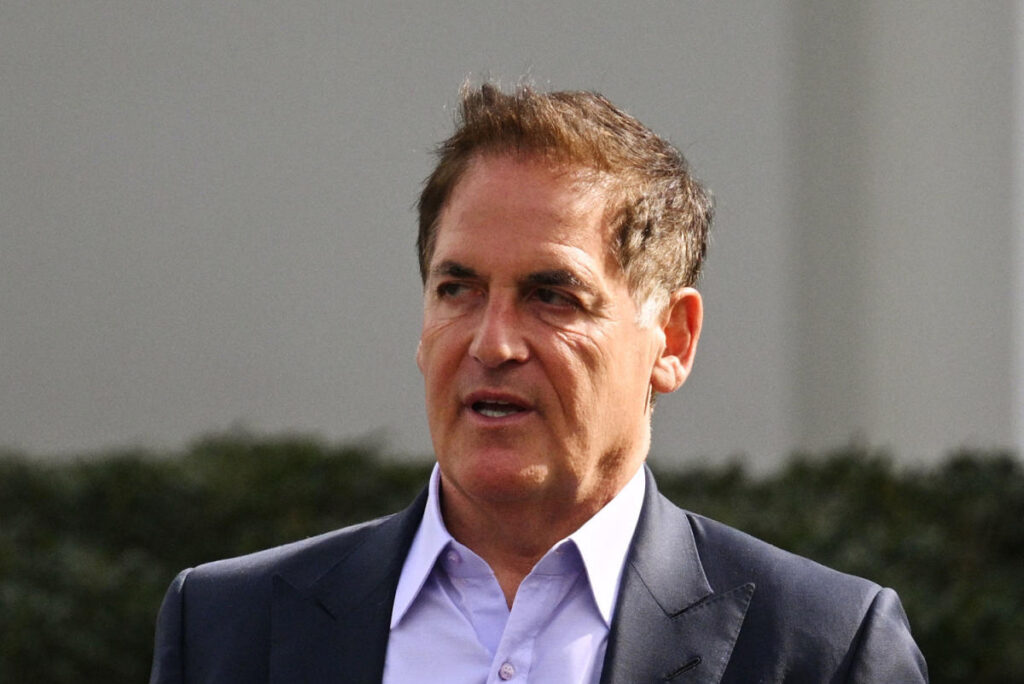In the current political climate, as the U.S. gears up for the upcoming elections, notable figures are aligning themselves with candidates to amplify their messages. Elon Musk, a key supporter of Donald Trump, is intensifying his efforts to promote the former president, engaging with voters in Pennsylvania in a series of discussions that could sway public opinion. On the opposing side, Vice President Kamala Harris is enlisting the help of billionaire Mark Cuban, who previously played a similar role for Hillary Clinton during the 2016 campaign. Cuban’s involvement with Harris marks a strategic attempt to engage a demographic that has become increasingly crucial in electoral outcomes: young male voters. Cuban is scheduled for a series of high-profile appearances alongside Harris, including events in Wisconsin, Phoenix, and Michigan, where he will campaign with second gentleman Doug Emhoff.
Cuban brings a distinct blend of business acumen and pop culture appeal to Harris’s campaign, leveraging his fame from television shows like “Shark Tank” to connect with younger audiences. He recently articulated the potential adverse effects of Trump’s economic policies, warning that tariffs could lead to higher prices and threaten the viability of small businesses during crucial holiday seasons. In a high-stakes election characterized by a widening gender gap, Harris’s campaign is keen on utilizing Cuban’s influence to resonate with male voters. She has been maximizing media appearances, featuring on platforms specifically attractive to this demographic, while also ensuring the campaign addresses economic concerns directly through strategic advertising placements.
Unlike Musk, who has become an influential donor to Trump-aligned entities, Cuban’s financial contributions to political campaigns are minimal, with just a historical $1,000 donation noted in the records. Still, allies of Harris believe that his presence could be more impactful than financial donations. Recent polling indicates that Cuban is particularly well-received among Hispanic men under 50, suggesting he could play a pivotal role in mobilizing this vital voter base. Meanwhile, Wisconsin’s Democratic Party chair highlighted Cuban’s appeal in economic discussions, underscoring his ability to relate to entrepreneurs through his personal brand and business experience.
Cuban’s relationship with Musk is complex, as he has publicly expressed concern regarding Trump’s character and leadership. He has urged Musk to remain cautious about relying on Trump, warning that the former president’s unpredictability might lead to disappointment. The contrast between Cuban and Musk’s political affiliations highlights a broader divide in how billionaires are navigating their public personas in relation to the political landscape. Notably, Cuban’s prior experience in deriding Trump during the 2016 campaign serves as a framework for his current role, as he continues to vocalize his trust in Harris despite acknowledging her imperfections.
The current alignment of Cuban with Harris is not without its critics within the Democratic Party. Some progressives are wary of a narrative that elevates billionaire voices in political discourse, questioning the motives behind Cuban’s newfound prominence within the campaign. Concerns arise over potential conflicts between the populist messaging Harris advocates and the interests that Cuban might represent due to his wealth and successful business background. His aspirations for influential positions within a potential Harris administration—including roles related to the regulation of cryptocurrency and other economic policies—further fuel speculation about the underlying agendas at play.
The nuanced dynamics of Harris’s campaign strategy underscore the growing importance of bipartisan political identities in the pursuit of electoral success. Cuban’s role as a high-profile spokesperson capable of reaching audiences traditionally less responsive to Democratic messages exemplifies the party’s effort to broaden its appeal. As the election approaches, the interplay between billionaires like Musk and Cuban and their respective candidate associations reflects a broader conversation about the impact of wealthy individuals on political landscapes and the positions they hold. The outcome of the campaign and the concerted efforts of figures like Musk and Cuban may shape not just the election results, but also the future direction of political alignment within the United States.

